Today’s guest post is by William Swearson. I met Will when cinematographer Tom Harting and I were following Jill Tarter around the Allen Telescope Array in the summer of 2008. I chose the dates we filmed because Jill would be interacting with the SETI Institute’s REU Students (Research Experience for Undergraduates). Will was among those students. During filming Will and I didn’t interact that much. I was running around like a crazy person and Will is a little shy. Somehow he also managed to evade the camera, because of all the students he appears in the footage the least.
I became better acquainted with Will afterwards, via email and of course Facebook. I asked him if he’d write something about his life’s work and he was game. I didn’t lay down any guidelines, and I wasn’t sure what I was going to get, but I had strong suspicion that whatever it was, it was going to be good, interesting, unique. I was not prepared for what he sent. Thank you, Will, for writing such an achingly beautiful post. Enjoy.
This started out completely different. I wanted my pursuit of science to be an uplifting tale. How a dumb kid overcame his obstacles, was victorious, and became a great scientist. Then, I tried to write this. Carl Sagan put it best when he said, “Every kid starts out as a natural-born scientist, and then we beat it out of them. A few trickle through the system with their wonder and enthusiasm for science intact.” My enthusiasm is still clutched tightly in my fists with my black and blue eye and busted lip, refusing to let go.
My parents met in the oil fields of North Dakota in the late 70’s. My mother was 17, recovering from the recent loss of her father. My father was 19 and from Towner, ND. He had moved to Dickinson looking for work. They met at a house party. Two years later, I came along. I was an awkward kid with an auditory processing disorder and some variation of spectral autism. I grew up pretty oblivious to the oil field and most other things not science related.
The oil field became a harsh reality when I needed a job to pay back my student debt. $110,000 worth had accumulated by the time I graduated. I took out high interest loans to pay for college after we lost my “college fund”. A year before I graduated high school a drunk driver ran a red light hitting my mom. A few months later my father was shot by a drunk, color blind hunter who mistook him for a deer. My mom quit her job, unable to work and take care of my now paraplegic dad at the same time. All said and done, the medical bills wiped out everything we had saved.
When I finished college, I asked my mom what it was like to be part of the oil field culture. Preparing myself for something I may have to do to make ends meet. I learned about the heavy drug use, the wild parties, and hard work and life they lived. I would be the third generation to work in the oil fields of North Dakota. It was a life I dreaded and eventually have to take.
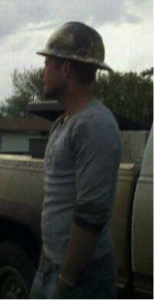
It’s 4 a.m. and I step outside of my living quarters to start my morning shift. I share the trailer with four other guys and half a dozen mice who live behind the fridge. They’ve grown fatter. I suspect it’s because of me. I have been secretly feeding them for weeks. The sound of metal pipes slam against each other as they are tossed around. That distinct, rhythmic sound is the floor crew “tripping out.” After some time out here, a person can tell what is happening by what he hears. If that was not a give away, the profanity being tossed around was also is a good indicator.
One of the first things you smell when you wake is invert. The drilling fluid used to lubricate and flush crushed rock from the bottom of the well to the surface. It’s made of diesel fuel, caustic acid, lime, and other solids. To most guys out here, it’s a depressing odor. I’ve asked (the scientist in me is curious). It is a reminder of our sixteen to twenty hour shifts for the next four to ten weeks.
I am impartial to the smell of invert. I grew up with it. The only thing that the invert reminds me of is the fact I forgot to wash my protective layer of clothes. I chuckle, my coveralls have now become ironic. They are soaked in invert from working on the floor. One misguided flick of a cigarette from a coworker and I am toast. Accompanying the smell is the sound of slamming pipes, the loaders, and three large diesel generators the size of school buses. The generators run 24 hours a day for weeks on end. During the winter, this is my favorite place to be. It’s warm, clean, and an easy place to hide from the other men.
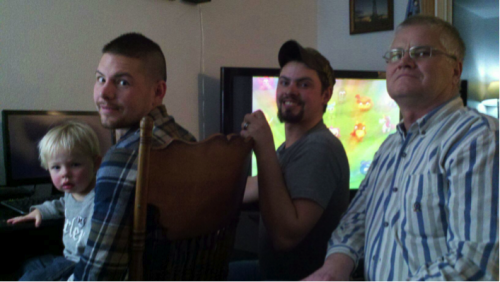
Walking towards the command center, I can see five other rigs standing fifteen stories tall. The finished wells nearby flare 15 to 20 foot flames. Its produces an eerie, faint reddish-orange flicker, and a shadow of me against the white trailers. Heavy machinery has been tearing away at the hillside nearby to build another “super pad.” It will support two to seven more wells and a “crawler” or a sliding rig. I wonder about what artifacts they dig up as I gaze at the exposed, beautifully stratified earth. Billows of red and black silt fill the air, coating everything in a fine layer of dust. It resembles the surface of Mars. Devoid of any visible signs of life. Even a weed, which would be a welcomed visitor, is nowhere to be found. I eventually arrive to my workspace. I will work here for the next 16 hours. This is my routine and its wrapped in the chaos of loud things, hydrogen sulfide, and blowouts.
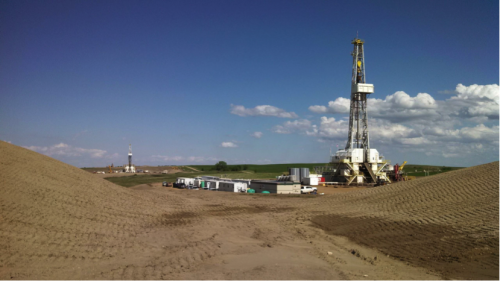
After years of schooling, obtaining a masters degree in a field I can only describe as being as useful in the real world as a degree in hocus pocus, I am feeling like an outsider. Years of learning how to move past having an auditory processing disorder and autism. How to understand social cues and respond to them correctly. Years of pursuing science, finding extrasolar planets, modeling Type II Supernovae, excavating an ancestral Hopi site, and examining a 9,500 year old North American mummy. Interning at SETI, reconstructing the biomass of South America and using one of the worlds largest radio telescopes (I met David here!). Working with a Nobel Prize Laureate, forecasting algal blooms. And, building a 15 foot two-stage rocket and competing in an international competition. This is my life and at times it is sometimes hard to stomach.
I know I am not the smartest man, but I am determined. I hope one day to go back to school, to study mechanical and environmental engineering. If there is anything positive to come from the oil field, it is this; it’s not for me. And, I will do what I have done in the past; I will push and I will fight until I can be among the giants and furiously pursue science, pursue my life’s work.
William Swearson studied at the University of North Dakota where he earned a M.S. in Space Studies. He currently lives in Grand Forks, ND with his partner.
Related: I think Haroon Butt’s Why Would a 21-Year-Old Be Interested in A Life’s Work? is an interesting companion piece.
More guests bloggers here.
And if you want to write something for this humble blog, leave a comment and let’s discuss.

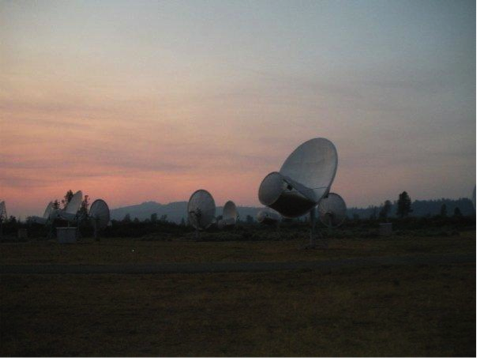
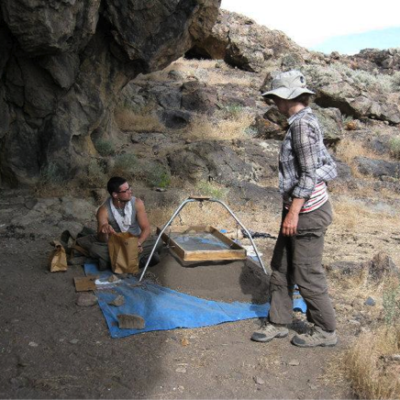
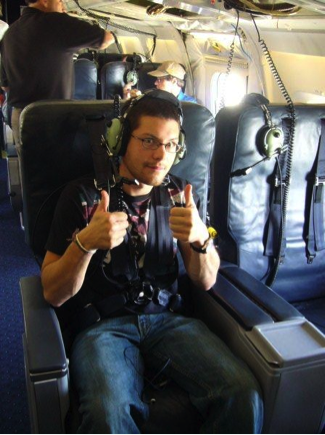

Christine
Thanks for sharing your inspirational story, William. Beautifully written.
Haroon
I seriously considered working in the oil fields to pay back student debt, but I didn’t have the guts. The post gave me a vicarious experience (a testament to the fantastic writing). I wouldn’t be able to handle it.
“Intelligence” is overrated, there’s plenty of smart people. Will’s rare work ethic would trump intelligence any day. It’s the key ingredient for uplifting tales.
Will: You refuse to let your pursuit of science be over without a happy ending, even if that requires a murky middle. That’s a very uplifting tale.
David Licata
There is no doubt in my mind that Will and you (Haroon) will wind up doing things that are deeply important to you. You are both exceptional people. Keep the faith in yourselves.
As always, thanks for reading and commenting.
D.